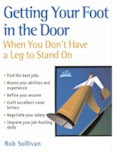The issues facing Illinois Governor Rod Blagojevich bring up another point worth noting. More specifically, there are times when it is best NOT to tell your story. For Gov. Blagojevich, who is facing impeachment, this would be one of them. My late grandfather, an attorney, used to say he made a lot of money telling people to "Just shut up."
In discussing this with an attorney familiar with Blagojevich's attorney, I asked what he thought about the governor's public statements:
"I am sure having him (Rod) go and talk was not the firm's first choice. Having someone who has, for all intents and purposes, used his mouth/words to create the situation is a bit like having a shooting suspect put on a marksmanship demonstration--there is not much to be gained by it. If a defendant's lips are moving and it is not subject to attorney-client privilege, they are probably not helping their case.
"In my experience, many accused persons like to continually protest their innocence, rationalize their actions, or the like seemingly in the hope that it will somehow convince people no matter the volume of actual proof and evidence there is to contradict them. At the end of the day, you often have to try to protect them as best you can from the system and process, while simultaneously trying to protect them from harm from themselves. Their efforts can look a bit like reckless suicide, if there were such a thing. At the end of the day, I think it is just part of the deal with someone who cannot or will not keep his mouth shut."
At times like this, it's good to remember a Buddhist principle I mentioned in an earlier post. Namely, when you are wondering how to respond to any given situation, ask yourself the question: "Is what I am about to say an improvement over maintaining silence?" If it isn't, keep your mouth shut.
Wednesday, January 14, 2009
Subscribe to:
Post Comments (Atom)

.jpg)
No comments:
Post a Comment